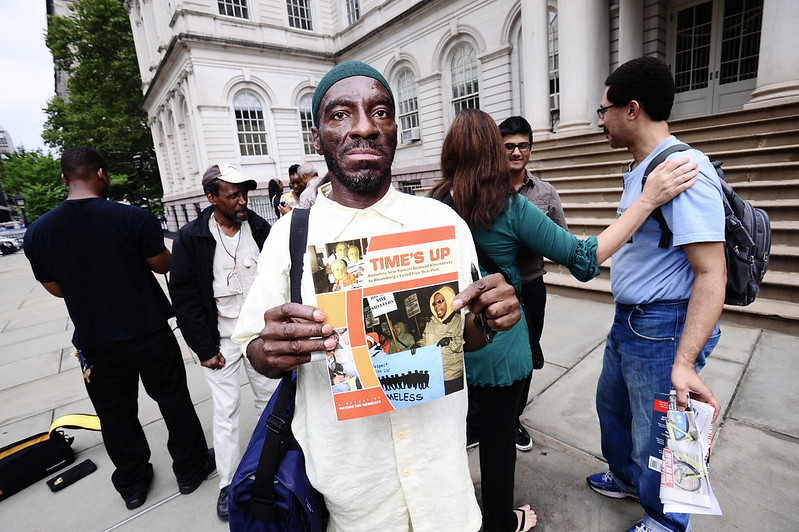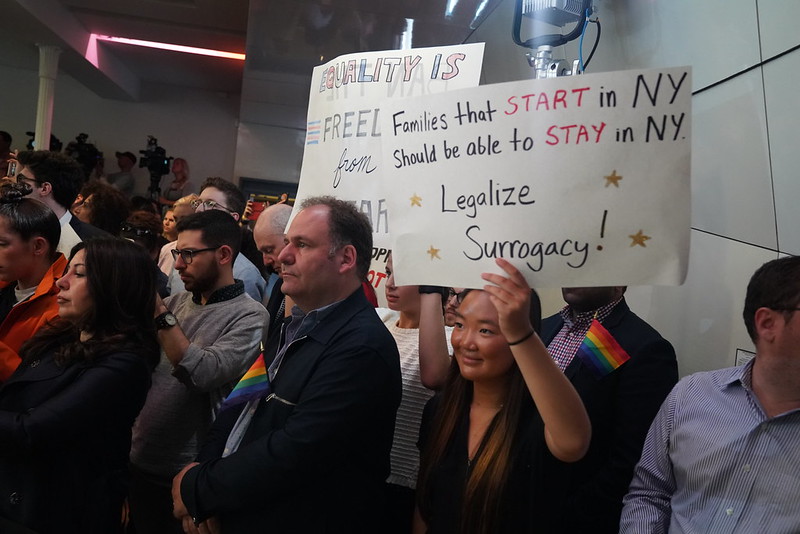Bail and Other Misguided Laws Started with Loss of Republican Senate

Gov. Cuomo and Long Island Democrats (photo: Governor's Office)
Long Island residents are finding out the hard way, once again, why it was so important to keep a balance of power in New York State via a Republican-controlled Senate and Democrat-controlled Assembly.
When Democrats took over the Senate after the 2008 election, it led to the horrendous MTA tax, which forced schools, nonprofits, and businesses throughout Long Island to pay a huge payroll tax to foot the bill for the city transit system. The bill was put over the top by two Democratic senators from Long Island. The public rebelled and the Senate was put back into the hands of the Republicans.
But in 2018, the tide shifted back to Democratic control in the Senate and throughout state government. “Don’t worry,” we were told, the Long Island bloc of Democrats will be moderate and stop the extremists from implementing dangerous policy. How did that work out?
Laws were passed giving driver's licenses and taxpayer-subsidized college scholarships to undocumented immigrants. Abortion was allowed up to the time of birth. Nine days of early voting, costing millions of dollars, was enacted when just a few days would have sufficed. Unrealistic limits on energy production will cause our electric bills to soar. And, of course, the new bail reforms are undermining public safety and order.
Our Long Island delegation is made up of well-intentioned, hard-working, and dedicated legislators. They will claim that they voted against some of these measures, including the driver’s license law, and can still be counted on to be an effective voting bloc. But it’s not their individual votes on these matters that are most important.
Rather, it’s the singular vote they take at the first legislative session of the year that leads to all these negative outcomes. That is, the vote to put in place a liberal Democrat at the head of the Senate, who then appoints New York City-centric “progressives” to be in charge of just about every committee and push the agenda. Consequently, uber-left legislation that in the past would have been stopped in these committees and never seen a Senate vote are now getting out to the floor.
Numerous local senators are now scrambling to undo the damage done by bail reform, but this misguided law would never have passed had Long Island Republicans still been in charge.
As impressive as these newly-minted senators are, the bottom line is they will vote to continue to have the New York City-centric liberals running the committees and dictating much of the chamber’s agenda. And that is not good for Long Island.
***
Steve Levy is President of Common Sense Strategies, a political consulting firm. He served as Suffolk County Executive, as State Assembly member, and host of "The Steve Levy Radio Show." On Twitter @SteveLevyNY.
***
Have an op-ed idea or submission for Gotham Gazette? Email This email address is being protected from spambots. You need JavaScript enabled to view it.
Do Homeless Lives Matter to the De Blasio Administration and City Council?

(photo: William Alatriste/City Council)
Imagine the reaction if the number of deaths within a particular neighborhood or among a certain ethnic, racial, or religious group had gone up by 40% in one year! There would be demonstrations on the steps of City Hall and the Mayor would be forced to respond.
Unfortunately, that is what has happened among the city's homeless population. Between July 2018 and June of 2019, 404 people considered homeless in New York City died, according to a recently-released city report. That is a 40% increase over the prior year and the largest year-over-year increase in a decade.
Many of these deaths did not occur within shelters. Homeless people died in hospitals, on subway cars, in abandoned buildings, and in vacant lots. The majority were middle-age men. Drug addiction, alcoholism, and heart disease were major contributors in many of the cases.
However, 15 homeless people died by suicide, which was more than double the amount in the previous year, and three of those individuals took their own lives inside a shelter. There were also 10 homicides, three more than the prior year (and although none took place in a shelter during the reporting period, at least two people were killed inside a shelter between July and December 2019).
In addition, 17 infants died in the system compared to 10 the prior year, a shocking number. Many of these cases are still under investigation. In addition, women also died more frequently than the prior year, to 91 deaths, up from 59, another incredible increase.
You would think such shocking statistics would sound an alarm at City Hall, but the administration‘s reaction to this has been underwhelming at best -- that basically it’s not their fault because these deaths and underlying conditions are results of “chronic health conditions due to decades of risk factors,” as city Social Services Commissioner Steve Banks told Gothamist.
Incredibly, administration officials seem to brag that when it comes to drug-overdose deaths, they have been able to keep the numbers steady, but at a high rate of 103 accidental drug overdose deaths.
Dr. Mitchell Katz, the CEO of the city’s public hospital system, told Gothamist that the overall increase in deaths among homeless people is driven by an aging homeless population and easy access to cheap drugs. In fact, the majority of those who died last fiscal year were middle-age men and there are 1,400 seniors in the shelter system.
Why is it then that seniors and middle-age men and women are not being prioritized into the supportive housing system? A middle-age man and woman in a homeless shelter system is equivalent to a much older person living a stably-housed life. The city must urgently move to get middle-age people and seniors who are living on the street and in the shelters into supportive housing as quickly as possible.
As someone who has run two supportive housing programs I know the advantages of these programs, which give a homeless person their own apartment and a social worker to speak with on a regular basis, among other services. Unfortunately, the placement rate into supportive housing is at a 14-year low, according to Coalition for the Homeless. Be aware that an increase in affordable housing coming online is not going to help this group. You need housing that is structured for supportive services and for a population that has no income.
We can no longer allow homeless people who are living on the streets and in the subway system to vegetate and sleep in filthy conditions, many of those who do clearly have serious mental and physical health issues. The current standard of when someone can be committed to a psychiatric hospital is that the person has to be a threat to themselves or others. However this has been interpreted too strictly.
A commonsense approach has been proposed by Loree Sutton, a former Army brigadier general and psychiatrist who was the city’s veterans services commissioner until resigning and announcing her candidacy for mayor in 2021. Doctor Sutton has suggested that the civil commitment law be amended so that seriously mentally ill people can access inpatient services before exhibiting an immediate danger to themselves or others. Of course we also must stop the elimination of psychiatric beds and reverse course to substantially increase the number of those beds available in the city and state.
Health services must be improved within the shelters and we need to quickly increase the number of drop-in centers that will allow people to get off the street quickly and receive food, clothing, showers, medical care, and access to a social worker. A nurse at a drop-in can quickly diagnose an urgent medical problem and call for an ambulance. We now have only two of these centers in Manhattan.
The very shocking statistics of fatalities among the city’s homeless population must be investigated and the subject of a City Council oversight hearing. The Council cannot allow the administration to sweep this under the rug and cast off blame. The large increase to an already unacceptable problem must be paid the attention it deserves.
***
Robert Mascali is a former Deputy Commissioner at the Department of Homeless Services and a former Vice President for Supportive Housing at Women in Need.
***
Have an op-ed idea or submission for Gotham Gazette? Email This email address is being protected from spambots. You need JavaScript enabled to view it.
A Cruel Surrogacy Proposal That New York Must Reject

There are competing proposals to legalize surrogacy in NY (photo: Governor's Office)
Imagine having a baby but then being told you have to wait eight days before securing custody of your child. It’s bizarre and cruel, yet it’s an idea that’s actually being floated in Albany right now as a “compromise” to finally end New York State’s outdated ban on gestational surrogacy.
As a three-time cancer survivor in my thirties who went through three rounds of fertility preservation before treatment, this is heartbreaking. I choose to live in New York for many reasons, one of them is the progressiveness of our laws. We are leaders, but not on surrogacy. Now, it’s essential we catch up, and there’s nothing progressive about a bill separating newborn babies from their biological parents just days after birth.
During my cancer recovery, I was shocked to learn New York is one of only three states banning surrogacy. This is an issue that hits home for me and the women I work with who have also survived cancer. For many cancer patients, infertility is an enormously emotional and physical side effect of life saving treatment. This can mean a significant decrease in number and quality of eggs, as well as the inability to carry a child to term. In many cases, the only possibility for having a biological child is through a partnership with a woman acting as surrogate.
Last year, Governor Cuomo, signed FAFTA (the Fair Access to Fertility Treatment Act) into law. Part of this mandate (that went into effect January 1, 2020) requires private insurance companies to provide fertility preservation medical treatments for people facing iatrogenic infertility, that is, infertility caused by a medical intervention, such as radiation, medication, or surgery. The next obvious step is to figure out a solution that helps these women become mothers after their cancer chapter has closed.
Currently, New Yorkers in this situation are forced to go out of state to find a surrogate. A bill that would end that ban, the Child-Parent Security Act, has the strong support of Governor Cuomo and passed the state Senate last year before dying in the Assembly. It is under serious consideration again this year, with the governor prioritizing it in his budget proposal.
Now a new bill is being sold as a “compromise” that while technically legalizing surrogacy would also effectively eliminate its practice in New York. This means an exacerbating ‘well we tried’ response from people who don’t take New Yorkers’ needs seriously.
The so-called compromise bill (S7717), sponsored by Senator Liz Krueger and by Assemblymembers Didi Barrett and Danny O’Donnell, would establish that after a child is born via surrogacy, the surrogate (who has no genetic relationship to the child) and the intended parents (who in most cases do have a genetic relationship to the child) would share parenting responsibilities for up to eight days. The surrogate could take the child home if she chose to. And if she petitioned the court within those eight days, she would automatically become the legal parent of the child with no recourse for the intended parents. In order for the intended parents to become legal parents, they would need to submit to medical evaluations, home studies, and background checks. Last I checked, these are not requirements for those with the ability to become mothers the traditional way.
Think about how cruel this proposal is for women struggling with infertility, including cancer patients. Imagine having to undergo treatment, doing everything possible to preserve fertility options, recovering from cancer, creating an embryo through IVF, and ultimately partnering with a woman who will carry your child to birth as a surrogate. And then still having to worry every day of the pregnancy that at the end of the process, the woman who is serving as a surrogate will change her mind and keep your child. It’s frightening, cruel, and just outright wrong.
It also reflects a lack of understanding about what surrogates want. Under professional practices in the United States, every surrogate already has their own biological children and have undergone careful medical and psychological screening. These women know exactly what they’re engaging in – they’re not pursuing surrogacy to have another child, but to help a family that cannot have children on their own.
Conversely, the Child-Parent Security Act would go far in helping those struggling with infertility in New York build a family. This is where New York can establish itself as a leader once again, now as it relates to surrogacy. In addition to legalizing compensated gestational surrogacy agreements, the legislation would create peace of mind for intended parents and establish the strongest protections in the nation for women serving as surrogates. Critically, the legislation would create a Surrogates’ Bill of Rights in New York, ensuring that women serving as surrogates have the right to make all medical decisions regarding their health and the pregnancy, the right to independent legal counsel, the right to comprehensive health insurance, and the right to access counseling.
Given the additional pain and trauma Senator Krueger’s proposal would put cancer patients seeking to become parents through surrogacy through, I hope she will consider withdrawing it and choosing instead to support the Child-Parent Security Act. New York must legalize surrogacy agreements and I applaud Senator Krueger for recognizing that need. But it is critical that we do so in a way that does not create additional trauma on intended parents – who have already gone through so much – and that protects women who serve as surrogates in New York.
***
Amanda Rice is the founder and CEO of the Chick Mission, a non-profit focused on critical issues unique to young, female cancer patients – including fertility challenges that may follow after surgery, chemotherapy, radiation, and drug treatment. On Twitter @thechickmission.
***
Have an op-ed idea or submission for Gotham Gazette? Email This email address is being protected from spambots. You need JavaScript enabled to view it.




